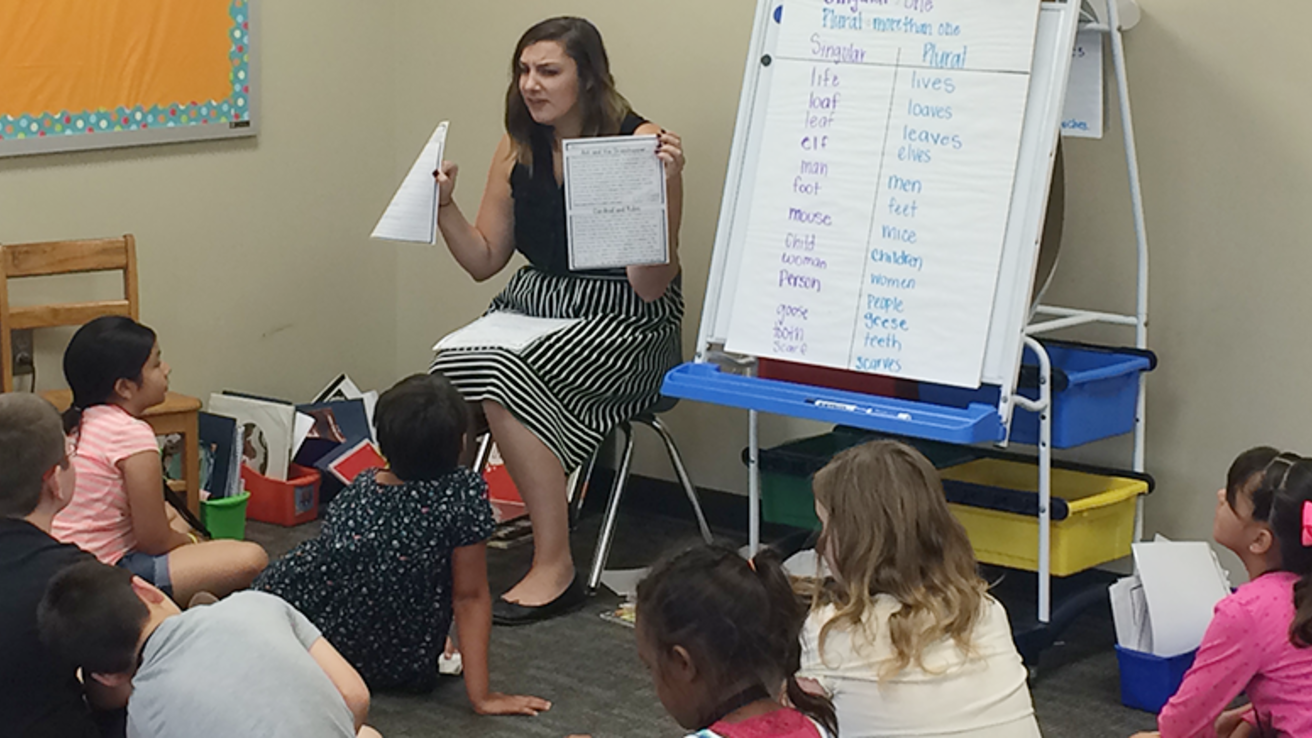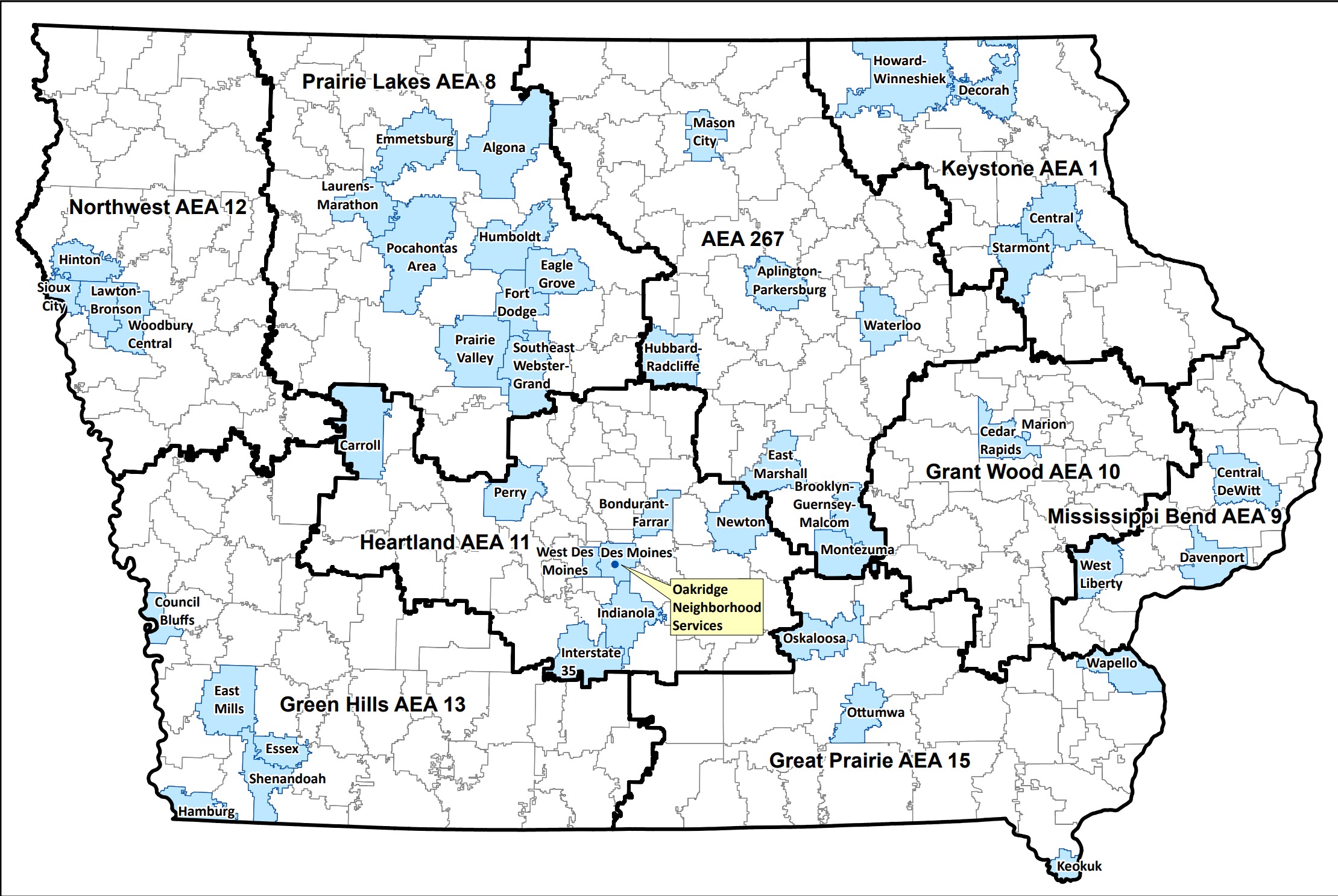Current Projects
Since 2015, the Iowa Reading Research Center has been at the forefront nationally in researching the effects of Intensive Summer Research Programs (ISRPs) on student literacy learning outcomes. Our findings have guided us to look beyond the notions of students experiencing “summer learning loss” to focus on exploring different ways ISRPs might benefit all students who are struggling with reading. We particularly are interested in how ISRPs can work in concert with the regular school year to help students improve.
Below is a description of our research of ISRPs.

Council Bluffs Community School District Summer Reading Program
An established leader and innovator when it comes to summer school reading programs in Iowa, this district initially asked the Iowa Reading Research Center for assistance with analyzing student data from its 2015 summer program. The next year, Council Bluffs partnered with the Iowa Reading Research Center for the statewide Intensive Summer Reading Program study involving 44 total districts. Based on findings from that research, the district asked the Iowa Reading Research Center to assist with adjusting and improving its summer reading program for 2017, during which the Iowa Reading Research Center served as an external evaluator.
Meta-Analysis of Summer Reading Benefits and Losses
The Iowa Reading Research Center conducted a comprehensive look at existing research findings on kindergarten–Grade 6 students’ reading performance over the summer. This analysis focused on the following:
- Whether or not students lost skills when not in school
- Whether or not students gained skills when involved in a summer reading program that may be provided in schools, community organizations, clinics, research centers, or in the home.
Intensive Summer Reading Program Study
Intensive Summer Reading Program Study

Students working with a teacher in Council Bluffs during the Intensive Summer Reading Program Study in the summer of 2016.
The Iowa Reading Research Center’s Intensive Summer Reading Program study found the programs helped students who were struggling with reading maintain their reading skills during the summer months. However, under the conditions in which they were implemented, the three types of summer reading programs did not accelerate reading improvement on average, according to the report detailing the study’s results.
The study found participating schools also faced challenges such as finding enough qualified teachers and literacy coaches in the summer months and sporadic student attendance.
There were 43 school districts and one community organization participating in the center’s ISRP study (see map with participating districts highlighted). The goal of the study, commissioned by the Branstad-Reynolds Administration and funded by a mix of private and public sources, was designed to compare three different summer reading program curricula. The study applied the guidance in the Early Literacy Implementation law to the programs in 120 classrooms statewide, implemented between May 31 and August 11. Participating schools had to provide at least 70 hours of evidence-based instruction in small classes (15 students or fewer) and monitor students’ reading progress.

Participating schools were randomly assigned to implement either a specified computer-based program, a specified print-based program, or a “business-as-usual” approach in which the schools determined their own literacy programs.
On average, the three approaches did not lead to statistically significant growth on tests of students’ reading ability. Results also showed achievement gaps in reading performance among minority students, students whose native language is not English, and students who receive special education services.
Staffing
Many participating school districts struggled to hire enough certified and experienced teachers for the summer reading programs because those teachers often had other time commitments. Classes may have been taught by newly graduated teachers, educators who had been out of the classroom for more than a decade, and long-term substitute teachers.
Student Attendance
Attendance during the Intensive Summer Reading Program study was optional, which may have contributed to the high rate of absences and attrition. Only 49% (1,111 of 2,235) of students invited to attend summer reading programs attended them. Of those students, 876 (79%) were present at the end of the programs. Attrition was greater among female students, students from low-income backgrounds, and black and Hispanic students.
The IRRC wishes to thank all of the administrators, teachers, literacy coaches, and students who participated across Iowa!
Early Literacy Survey of Iowa Elementary Schools: Statewide Results (Summer Sections)
This survey conducted by the Iowa Reading Research Center in November 2018 to better define current literacy practices and inform next steps included sections on ISRPs offered in Iowa. Results showed approximately 65% of schools reported offering their students summer learning opportunities, with 30% of such programs supported by community partners and 95% intended for students not reading proficiently. Summer programs commonly (74%) offered between 46 minutes and 2 hours of daily reading instruction, and are held for four weeks or longer (73%). About 85% of the schools offering ISRPs reported they assess students’ reading performance with one or more measures.